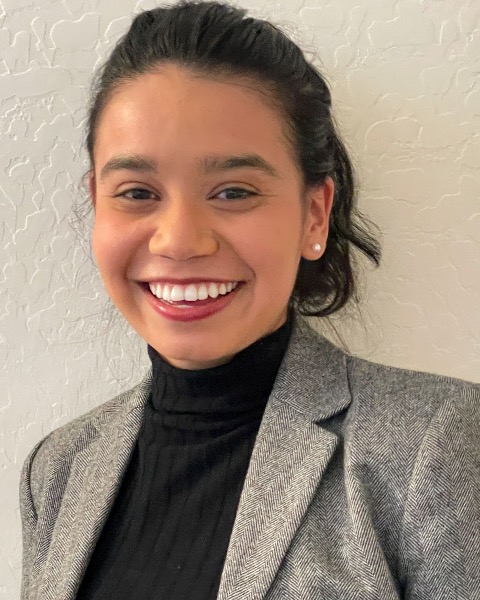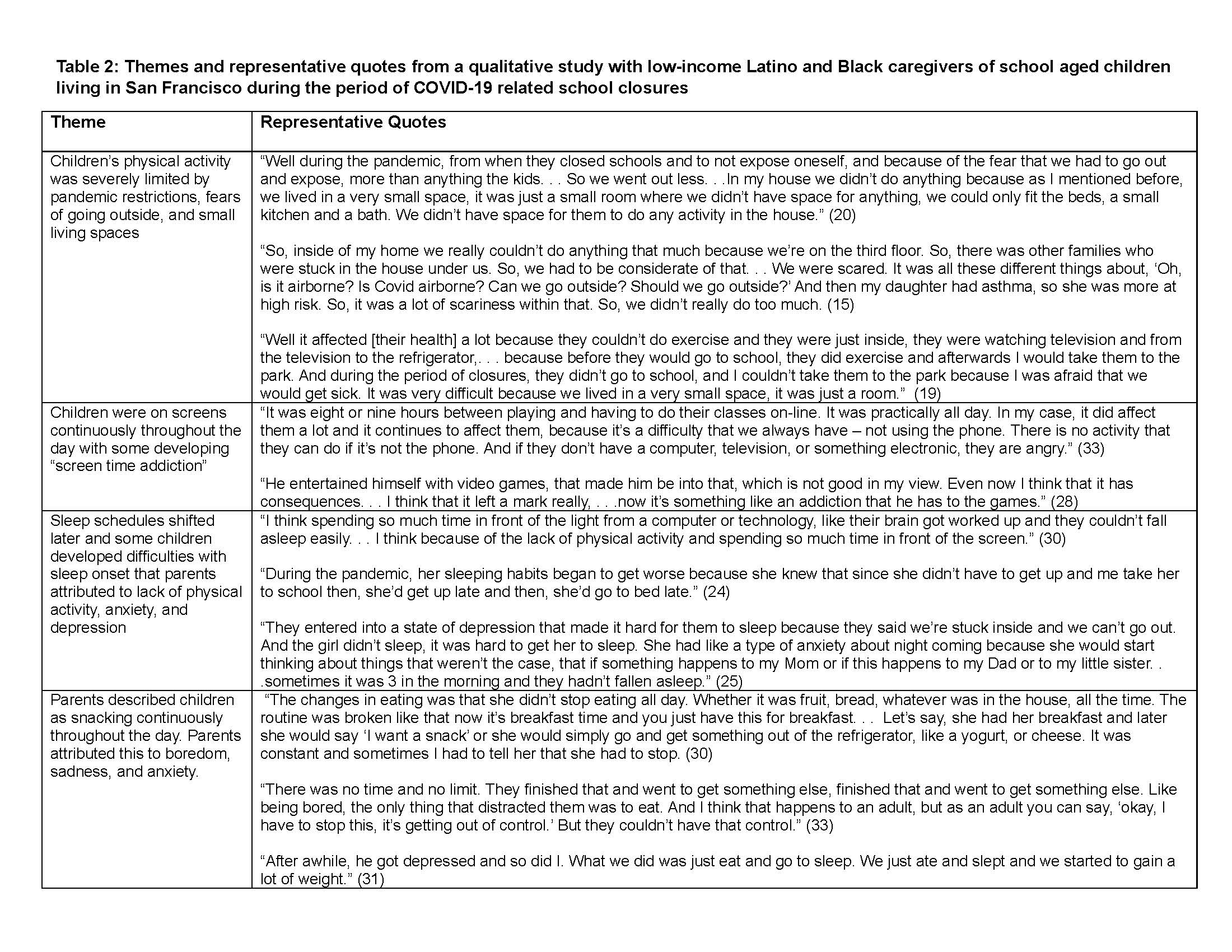Obesity 1
Session: Obesity 1
267 - A qualitative examination of the impact of the COVID-19 pandemic on health behaviors during the period of school closures among children in San Francisco, CA
Sunday, April 27, 2025
8:30am - 10:45am HST
Publication Number: 267.3741
Milagro Escobar, University of California, San Francisco, School of Medicine, San Francisco, CA, United States; Jessica Esparza Del Toro, University of California, San Francisco, School of Medicine, San Francisco, CA, United States; Alicia Fernandez, University of California, San Francisco, School of Medicine, San Francisco, CA, United States; Amy Beck, University of California, San Francisco, School of Medicine, San Francisco, CA, United States

Milagro Escobar, BA (she/her/hers)
Pediatric Clinical Research Coordinator
University of California, San Francisco, School of Medicine
San Francisco, California, United States
Presenting Author(s)
Background: COVID-19 pandemic related closures of schools and recreational activities led to unprecedented changes in children’s routines. Evidence to date suggests that child overweight/obesity increased during the pandemic, with the greatest impact on low-income children from marginalized communities. However, there remain gaps in understanding how health behaviors drove these increases, particularly among children in communities with prolonged school closures.
Objective: To use qualitative methods to understand the impact of school closures and stay-at-home orders on children’s health behaviors among low-income children in San Francisco.
Design/Methods: We conducted focus groups and semi-structured interviews with Latino and Black parents/caregivers of school age children. Participants were recruited at a federally qualified health center in San Francisco. The focus groups and interviews were conducted in person and explored parent perception of children’s experiences with physical activity, screen time, sleep and eating during the period of school closures. Focus groups and interviews were transcribed and analyzed in their original language (Spanish or English). A generalized inductive approach was used to analyze transcripts.
Results: We conducted two focus groups (one in Spanish and one in English) with n=13 parents/caregivers and semi-structured interviews with n=36 parents/caregivers between November 2023 and September 2024. Four major themes emerged: 1) Children’s physical activity was severely limited by pandemic restrictions, fears of going outside, and small living spaces. 2) Children were on screens continuously throughout the day with some developing “screen addiction” 3) Sleep schedules shifted later, and some children developed difficulties with sleep onset that parents attributed to lack of physical activity, anxiety, and depression 4) Children’s eating frequency increased, with parents describing children as snacking continuously. Parents attributed this to boredom, sadness and anxiety.
Conclusion(s): Parents/caregivers of low-income Latino and Black children living in San Francisco described significant changes in children’s physical activity, screen time, sleep and eating habits during the period of school closures. These changes were related to pandemic restrictions, lack of buffering resources, and worsening mental health of children and parents. In future pandemics, the potential health impacts of behavioral changes should be taken into consideration when making decisions about closing schools and recreational activities for children.
Table 1 Demographic data describing low-income Latino and Black caregivers in San Francisco, California who participated in a qualitative study examining the impacts of the COVID-19 pandemic school closures on children’s physical activity, screen time, sleep and eating behaviors
.jpg)
Table 2: Themes and representative quotes from a qualitative study with low-income Latino and Black caregivers of school aged children living in San Francisco during the period of COVID-19 related school closures


